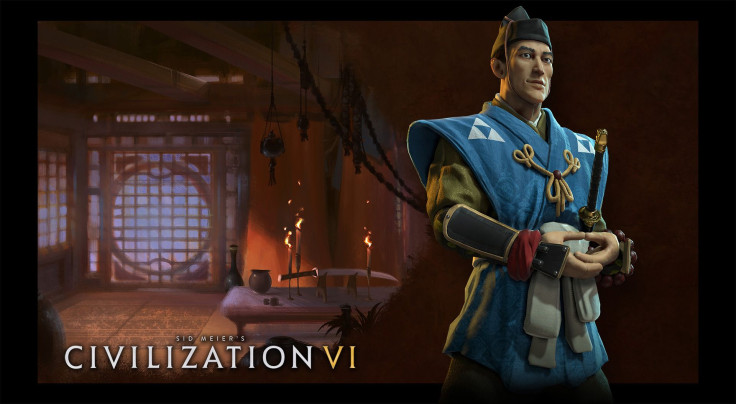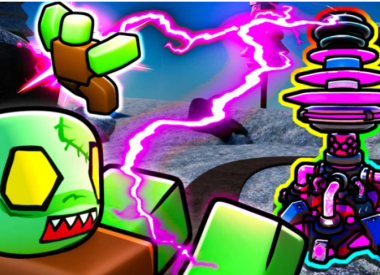Civilization VI is probably one of the games I’m most looking forward to this year. With nearly 500 hours logged on Civilization V, I’m ready to introduce a change of scenery. And almost everything in Civ ’s next installment is changing, from unpacked cities to even victory conditions. Gameplay standbys like the Research tree have been split into the Civics and Tech trees, and Districts change the very landscape like never before.
I had four hours with Civ VI , and my hands-on demo impression gave me the absolute, ironclad certainty that 500 more hours of my life will be poured into Civ VI without me noticing or even caring. Here’s six ways that #OneMoreTurn hashtag will get way too real on Oct. 21.
Districts are magical.
One of lead designer Ed Beach’s mandates for Civ VI was to make the map matter and force players to change their strategies based on the particular conditions found on that game’s map. Part of that meant the creation of Districts: special tiles outside of the city center that provide important bonuses, but are vulnerable in war.
This means you get to see your strategy’s effect on your cities. You feel more like a city-builder than ever before as you enjoy the sight of your thriving Theater District, your bustling Market and Harbor Districts and your busy Encampments – all of them evolving with the passage of time.
District placement reminds me of the Culture mini-game in Civ V , where you carefully swapped your Great Works around to maximize the benefits received. In Civ VI , you’re carefully choosing where each District is placed and what it’s adjacent to in order to maximize its bonuses, a strategic consideration critical to your success on both city- and civ-level. I played Japan , which takes Tetris-type adjacency bonuses to the next level in a really fun way.
Wonders are magical.
Each Wonder takes up one tile, and some Wonders are very strict about terrain and adjacency requirements. No longer can you have 27 Wonders boggling belief in a single city, with a representation of maybe 3 of them visible on the map if you’re lucky. But on the flip side, you can see every single Wonder you construct. Not only that, the stringency of some requirements means that when the stars align and you construct that one finicky Wonder, the sense of accomplishment is positively delicious.
When you complete a Wonder, you also get to enjoy a time-lapse video of it being built. The way the whole game stops just so you can lean back and enjoy the fruits of your labor really makes Wonders feel special. Wonders adorn your cities most beautifully, but are as vulnerable as your District to the depredations of War and, of course, each Wonder takes up a spot that could have been a District.
They’re still so completely worth it and I still built as many Wonders as I could cram around my cities.
City-States aren’t interchangeable anymore.
Previously, the only reason to care about City-States was if they had resources you needed or you were gunning for that Diplomatic victory. But the City-States all felt interchangeable. What really differentiated Vatican City from Mozambique, aside from the music that played when you selected them? City-States in Civ V were differentiated more by type than by anything individual about them, aside from whatever random scattering of resources they might have.
Civilization VI changes this in several ways. First of all, Civ VI City-States each have a unique bonus that only that City-State provides. This makes them feel far more important. Second of all, when you max out your influence with a City-State, you become its Suzerain. In addition to being an awesome title, it means you can pay gold to levy that City-State’s troops in times of war. You also gain access to its unique bonus - denying that bonus to your opponents as well.
But Suzerain status can be tricky to hold onto, especially in wartime when those extra troops come in clutch on either side. You hold onto this status via the Envoy system, which replaces Civ V ’s pay-to-win Influence system. Envoys are acquired via City-State quests and the Civics tree. Overall, the new City-State system is really promising and I look forward to spending more time with it.
Builders are way better than Workers.
In Civ V , your Workers were goddamn immortals. Unfortunately, at a certain stage of empire-building, they became obsolete, so you could automate them. By automating them, you continued to shell out a few coins for their upkeep while they shuffled around doing god knows what in order to justify their existence. They’d build improvements that ultimately served to give wartime enemies free HP by pillaging, or they’d just sit around and suck up your treasury.
Either way, they weren’t fun nor were they a significant strategic consideration. By late-game, you might as well have dispensed with your Workers entirely, purchasing them as needed to complete projects and then eliminating them again. The only long-term project they were any good for w roads, which you had to tediously assign in order to make certain terrain maneuverable.
Builders remove all of the tedium from Workers when they’re incorporated into your strategies. They only have 3 charges - what do you spend them on? Once their charges are done with, they disappear into the night. No more useless immortals. As for roads, Builders don’t even handle them. They are built automatically via trade caravans, a nice nod to real history. This time around, Builders don’t feel like a boring but necessary afterthought.
Leaders have so much personality, making Diplomacy way more fun.
Civ leaders have a lot of personality in Civ V , but something about the goofy cartoony style of Civ VI plus the wealth of diplomatic options that ship with the vanilla game means that each leader really feels like a cunning possible antagonist on the field of empire. The diplomacy screen is laden with possible secrets to uncover. It’s also easy to understand and very useful. I found myself checking out the diplomacy screen often, just to see if my own people had gotten me any more useful gossip in the last few turns.
It’s not just about hidden leader agendas, though uncovering these is a tantalizing prospect. The way other leaders speak to you, and what they choose to speak to you about, takes one of the most entertaining aspects of Civ V to another level. France alone makes the intrigue game a powerful and dangerous one to play. The diplomacy screen’s detail-laden usefulness is still quite accessible and not overwhelming, and it contributes very much to making each Civ feel as unique as your own.
What are you most looking forward to when Civ VI ships? Feel free to let us know in the comments section below.



















